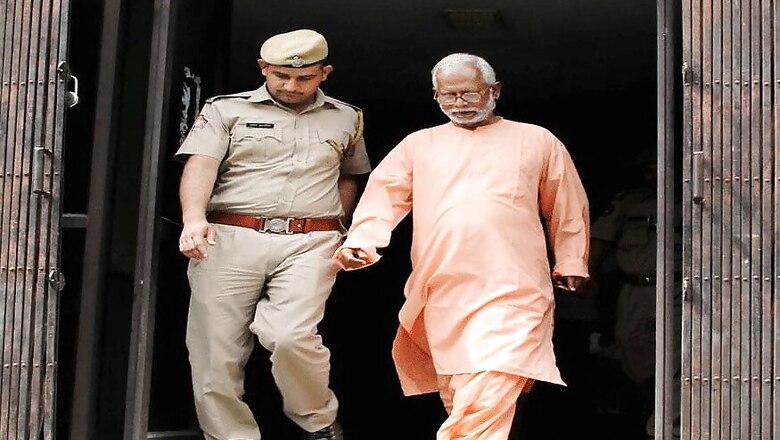
views
Hyderabad: Special NIA Judge Ravinder Reddy, who in the Mecca Masjid blast verdict acquitted Swami Aseemanand and four others had dismissed Aseemanand’s confessional statement, recorded in police custody, as “non-voluntary”.
A remote-controlled blast had taken place in Hyderabad’s Mecca Masjid on May 18, 2007. The incident left nine individuals dead and over 38 injured. This blast took place on a Friday when the over 400-year-old mosque was buzzing with activity.
In his 140-page verdict, delivered on April 15, Judge Reddy questioned the veracity of Aseemanand’s confessional statement.
“There is no proper explanation as to why the investigating officer was rushing to move an application before the chief judicial magistrate in New Delhi with the request to record the confessional statement of Aseemanand. He had ample opportunity to come down to Hyderabad and after expiry of the police custody of Aseemanand could have moved an application before the jurisdictional court,” the court has noted.
Later, the court reasoned this by stating that Aseemanand had retracted the statement and that the confession was hit by Section 26 of the Indian Evidence Act.
“This court holds that the confessional statement of Aseemanand is hit by section 26 of the Indian Evidence Act. This court holds that the confessional statement of Aseemanand was not a voluntary one which was recorded during the course of police custody. The statement was also retracted by the accused four months later,” said Judge Reddy, while ordering the acquittal for Swami Aseemanand.
The court acquitted all five accused holding that the prosecution failed to prove "even a single" allegation against them.
Besides Aseemanand, the other acquitted in the case are Devender Gupta, Lokesh Sharma, Bharat Rateshwar and Rajender Chowdary.
There were 10 accused in the case. Two accused — Sandeep V Dange and Ramchandra Kalsangra — are absconding, while Sunil Joshi was murdered. Investigation is continuing against two others.
Judge Reddy has also raised questions on why Aseemanand, who was believed to be the brain behind the blast, did not get legal aid.
“Aseemanand was not provided with Legal Aid during his first spell of police custody. The facts and circumstances of the above said authority relied on by the NIA, wherein the officer who recorded the confessional statement of the accused had assured him that he will not hand Aseemanand over to police and will send him back to jail. Though the facts and circumstances of the case shows that Aseemanand was handed over to an investigating officer after recording the statement under CRPC 164,” noted the special NIA judge, who had resigned just moments after the verdict citing “personal reasons”. The resignation was later dismissed by the HC, which ordered him to join the court.
Apart from making observations on why Aseemanand’s confessional statement was not reliable, the court also trashed the evidence produced by the prosecution which “failed to prove beyond reasonable doubt that Devender Gupta had a communal bias being a member of RSS and having delivered hate speeches”.
“There is no record to show the hate speeches of Devender Gupta being delivered at Jamtara (Jharkhand). The RSS is not a proscribed organisation if any person works in it, it does not give any scope that he is communal and anti-social,” said the judge referring to Devender Gupta, an RSS worker from Bihar.
The judge clearly held that the prosecution was not able to prove its case beyond reasonable doubt.















Comments
0 comment